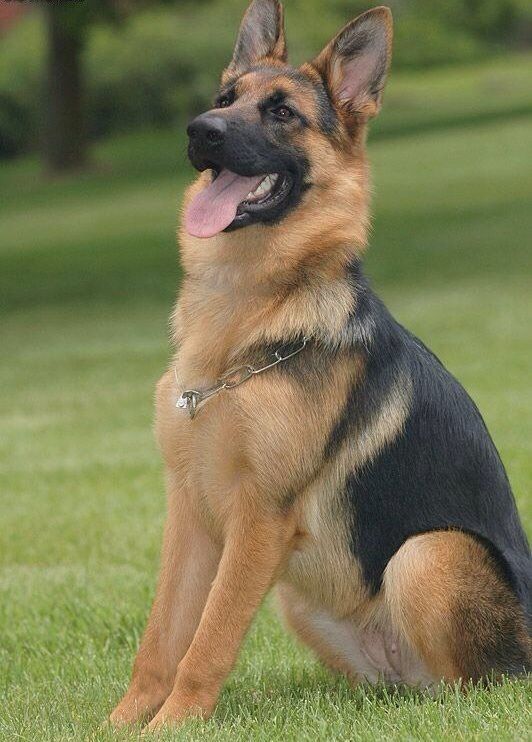When it comes to the animal kingdom, the dynamic between predator and prey is a fascinating subject of study. One such intriguing comparison is between the beloved German Shepherd and the cunning coyote. These two creatures, despite their differences, share certain traits that spark curiosity and debate. In this article, we will discuss deep into the world of German Shepherds and coyotes, exploring their characteristics, behaviors, and interactions.
German Shepherd: A Loyal and Intelligent Companion

German Shepherds are known for their intelligence, loyalty, and versatility. Bred originally for herding sheep, they have since found their place in various roles, including police, search and rescue, and beloved family pets. Their keen intellect allows them to excel in obedience training, making them not only reliable working dogs but also cherished companions.
Temperament and Behavior
German Shepherds possess a gentle and protective temperament, making them excellent family pets. They are known for their loyalty and strong bond with their owners. These dogs are often affectionate, forming deep connections with children and adults alike. Their inherent protective instincts also make them great watchdogs.
Comparing German Shepherds to Coyotes
While both German Shepherds and coyotes belong to the Canidae family, their differences are substantial. German Shepherds have been selectively bred for generations, resulting in specific physical and behavioral traits. On the other hand, coyotes are wild animals with distinct survival instincts. The contrast between a domesticated German Shepherd and a wild coyote is akin to comparing apples and oranges.
Coyotes: wise and adaptable predators
Coyotes are highly adaptable creatures, thriving in various habitats across North and Central America. Their ability to survive and even thrive in urban environments is a testament to their intelligence and resourcefulness. Coyotes play an essential role in ecosystems by controlling rodent populations and scavenging on carrion.
Temperament and Behavior
Coyotes exhibit a mix of solitary and social behavior, often forming small family groups. They are known for their cunning nature, employing stealth and clever strategies to find food. Despite their wild instincts, coyotes generally avoid human contact and prefer to steer clear of populated areas.
Difference between coyotes and German shepherds
Coyotes and German Shepherds are distinct species with notable differences in various aspects, including physical characteristics, behavior, and ecological roles. Here are some key differences between the two:
Physical Characteristics:
Size and Build: German Shepherds are larger and more robust than coyotes. They typically weigh between 50 and 90 pounds (22 and 41 kg) and stand about 22 to 26 inches (56 and 66 cm) tall at the shoulder. Coyotes, on the other hand, are leaner, weighing around 20 to 50 pounds (9 to 23 kg) and standing around 21 to 24 inches (53 to 61 cm) tall.
Coat: German Shepherds have a double coat, which can be short or long, with a variety of color patterns, including black and tan, sable, or all-black. Coyotes have a similar double coat, often grayish or reddish-brown, with a bushy tail that has a black tip.
Behavior and Habitat:
Domestication: German Shepherds are domesticated dogs bred for specific traits and purposes, such as herding, guarding, and working alongside humans. Coyotes are wild canids and are known for their adaptability to various habitats.
Social Structure: German Shepherds are often kept as solitary pets or in small social groups in human households. Coyotes typically live in family groups called packs, which consist of a breeding pair and their offspring.
Diet and Feeding Habits:
Diet: German Shepherds are omnivores and are primarily fed commercial dog food or a balanced diet. Coyotes are opportunistic omnivores, feeding on a wide range of prey, including small mammals, birds, insects, fruits, and scavenged food.
Communication:
Vocalizations: German Shepherds communicate with barking, whining, and howling, which can vary depending on their training and context. Coyotes are known for their distinctive howling, which they use for communication, marking territory, and coordinating with pack members.
Predatory Behavior:
Hunting: German Shepherds have been bred for various purposes, including herding and guarding livestock. While they retain some predatory instincts, their behavior is often guided by human direction. Coyotes are natural predators with well-developed hunting skills and instincts.
Human Interaction:
Relationship with Humans: German Shepherds have a long history of close association with humans and are often considered loyal and protective companions. Coyotes, while adaptable to urban environments, typically maintain a more cautious and wary distance from humans.
Conservation Status:
Status: German Shepherds are not considered a threatened or endangered species. Coyotes, while not endangered, have adapted to various human-altered landscapes and have expanded their range in response to human activities.
Can a German shepherd kill a coyote?
Yes, a German Shepherd has the physical capability to kill a coyote. German Shepherds are larger and more muscular than coyotes, and they possess powerful jaws and strong bites that could potentially inflict fatal injuries on a coyote. However, it’s important to note that the outcome of such an encounter would depend on various factors.
Coyotes are intelligent and resourceful predators with sharp instincts for survival. They are known for their agility and ability to evade threats. In many cases, coyotes are more likely to avoid direct confrontations with larger animals, including adult German Shepherds. If a German Shepherd were to confront a coyote, the coyote might attempt to flee rather than engage in a fight.
Additionally, coyotes often rely on their pack behavior when dealing with threats or prey. If a German Shepherd were to encounter a group of coyotes, the dynamic could shift, and the situation might become more complicated. Coyotes working together in a pack could potentially pose a greater challenge to a lone German Shepherd.
It’s also important to consider that domesticated German Shepherds, despite their physical capabilities, might not have the same predatory instincts as wild animals like coyotes. They are often trained to follow human commands and behave in a controlled manner.
Will a coyote attack a German Shepherd?

Coyotes generally try to avoid direct confrontations with larger animals like adult German Shepherds. While coyotes are known for their adaptability and cunning, they are also cautious and tend to prioritize their own safety. Therefore, the likelihood of a coyote attacking a German Shepherd is relatively low.
Coyotes typically prefer to target smaller, easier prey that they can catch and overpower without putting themselves at risk. They are more likely to go after smaller mammals, birds, or even scavenge for food rather than engage in a physical altercation with a larger and potentially dangerous opponent like a German Shepherd.
However, there can be exceptions to this general behavior. In rare cases, if a coyote feels cornered, threatened, or if its territory is invaded, it might exhibit defensive aggression. It’s essential for pet owners to be vigilant, especially in areas where urban development encroaches on natural habitats. Keeping your German Shepherd on a leash and avoiding areas known for coyote activity during dawn and dusk can help prevent any potential conflicts.
Overall, while the chances of a coyote attacking a German Shepherd are minimal, responsible pet ownership and awareness of the local wildlife are important factors in ensuring the safety of your pet in areas where coyotes are present.
Conclusion
In the realm of nature, the German Shepherd and coyote represent two sides of the spectrum: domestication and wilderness. While German Shepherds offer companionship, loyalty, and protection to humans, coyotes embody adaptability and survival in the wild. It’s important to appreciate and understand the unique roles these creatures play in our world and to respect the boundaries that allow both species to thrive. By arming ourselves with knowledge, we can create a harmonious balance between the domestic and the wild.
So, if you’re ever curious about the dynamic between a German Shepherd and a coyote, remember that each has its place in the grand tapestry of nature, contributing to the intricate web of life.
FAQs
Can a German Shepherd beat a coyote in a fight?
While a German Shepherd may have physical strength, coyotes possess agility and instincts honed by survival in the wild. Encouraging such encounters is not advisable, as wild animals should be respected and given space.
Are German Shepherds good guard dogs against coyotes?
Yes, German Shepherds can serve as effective guard dogs to deter coyotes from approaching homes and properties. Their protective nature and loyalty make them valuable allies in keeping potential threats at bay.
Do German shepherds and coyotes share any common traits?
Both German Shepherds and coyotes belong to the Canidae family, which means they share certain genetic similarities. However, their distinct breeding and environmental adaptations lead to differences in behavior, appearance, and overall behavior.
Are coyote-German Shepherd hybrids possible?
While theoretically possible, hybridization between coyotes and German Shepherds is highly unlikely due to their differing natural habitats and behaviors.
Can German Shepherds and coyotes coexist peacefully?
In most cases, German Shepherds and coyotes are likely to avoid each other. However, responsible pet ownership and precautionary measures are essential to ensuring the safety of both pets and wildlife.
What should I do if I encounter a coyote with my German Shepherd?
If you encounter a coyote while walking your German Shepherd, it’s best to keep a safe distance and slowly back away. Avoid direct confrontation and ensure your dog is under control on a leash.

